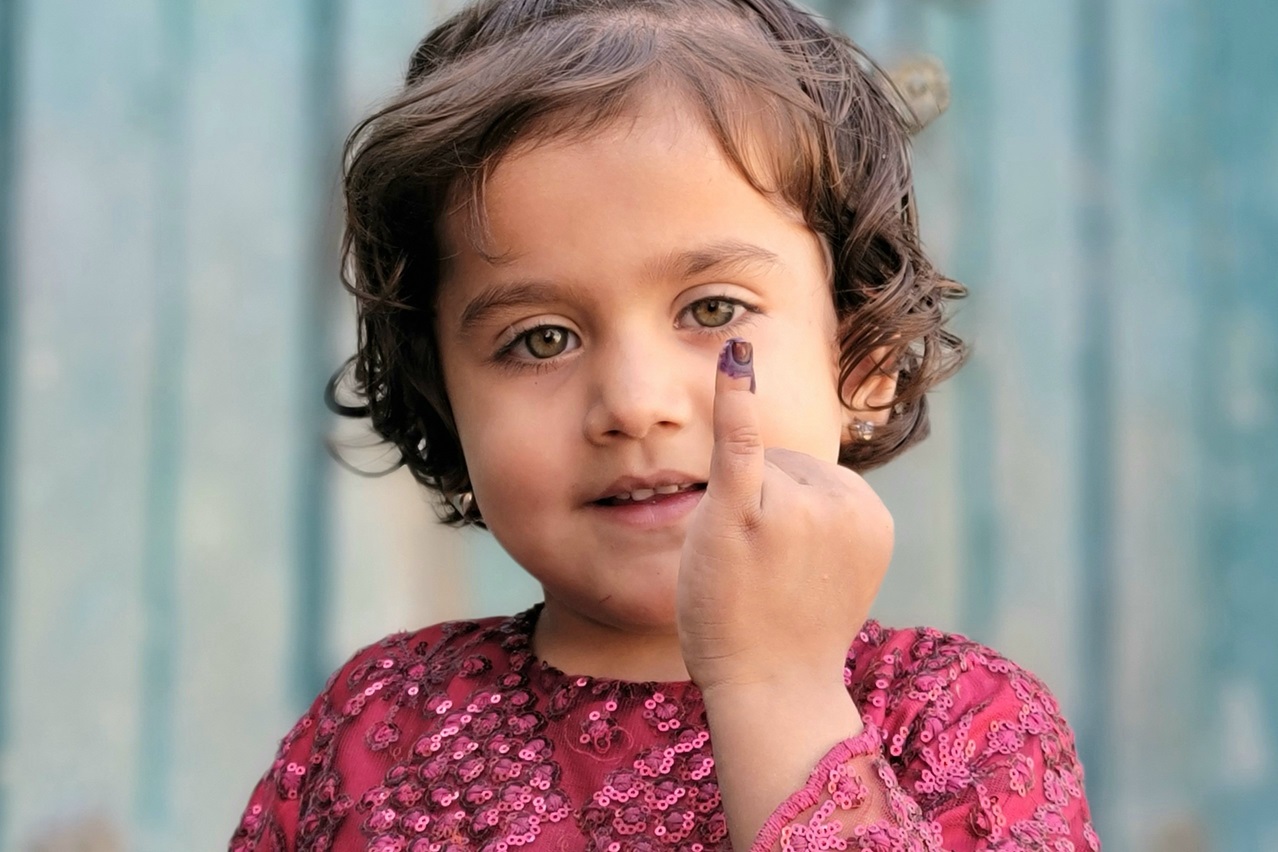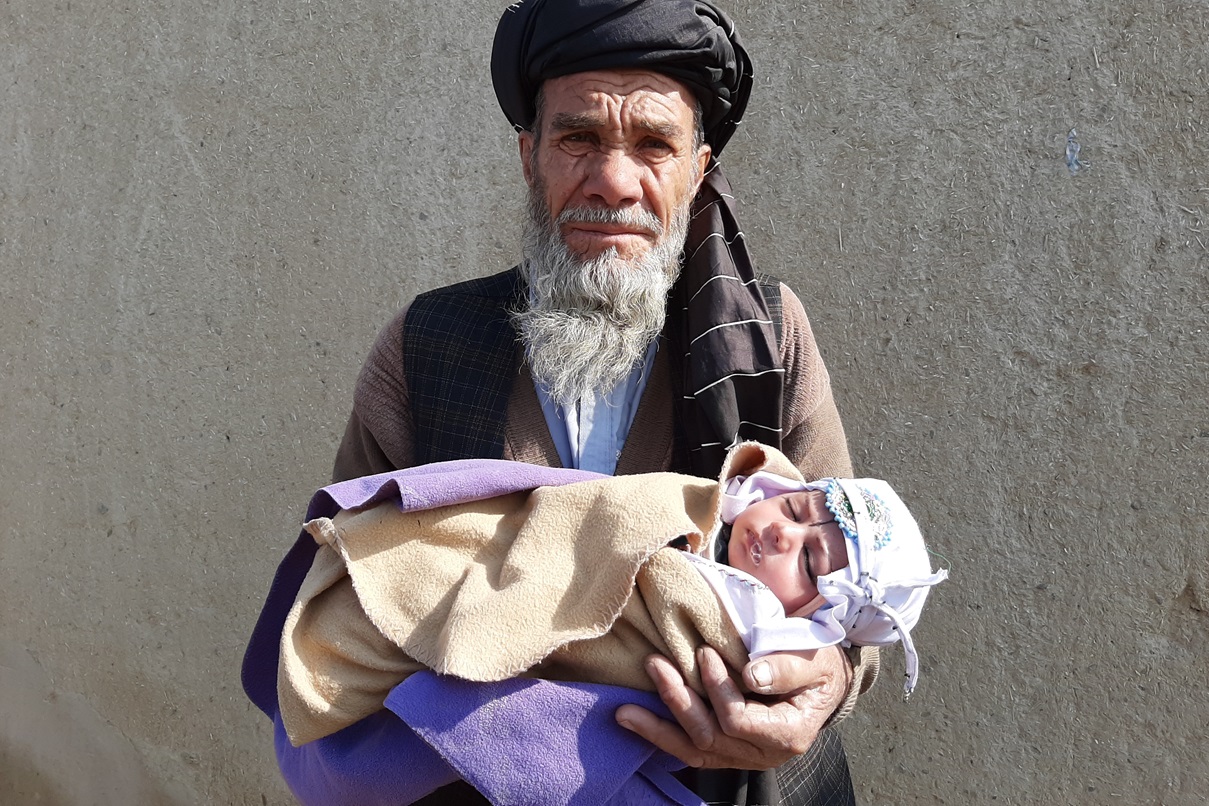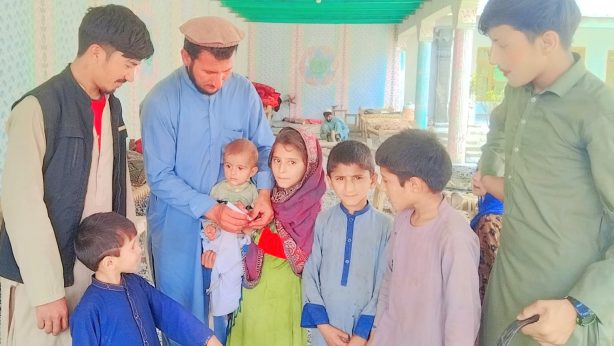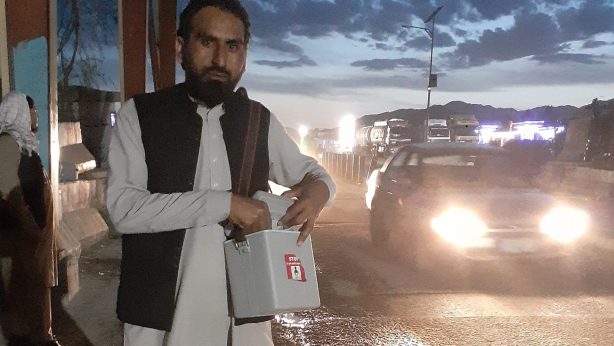“Safeguarding Children from Polio is Everyone’s Responsibility”

Saeed Zabuli
Helmand, Afghanistan – Tribal elders and religious scholars of Helmand province emphasize, in one voice, the importance of administering the polio vaccine and urge people to vaccinate their children and safeguard them from the crippling and deadly disease of polio.
They state that polio has no cure, and the only way to prevent it is by administering two drops of the vaccine to children during each campaign.
Haji Sahib Jan, a 55-year-old tribal elder from Marjah district of Helmand, said that the polio virus is once again spreading in various parts of the country, and recently, several positive cases of polio have been recorded in the southern zone.
He added, “It is deeply concerning that, despite the availability of vaccination services, the polio virus still affects our children, leaving them with permanent disabilities.”
He called on the public to actively participate in every polio vaccination campaign with full unity and ensure that no child is deprived of this opportunity.
“I not only vaccinate the children in my own family during each campaign, but I also walk through the entire village with volunteers to ensure that no child misses the polio vaccine,” he said.
 Tribal elders and religious scholars of Helmand province emphasize, in one voice, the importance of administering the polio vaccine and urge people to vaccinate their children to protect them from the crippling and deadly disease of polio © Polio Free Afghanistan/ 2024/ Saeed Zabuli
Tribal elders and religious scholars of Helmand province emphasize, in one voice, the importance of administering the polio vaccine and urge people to vaccinate their children to protect them from the crippling and deadly disease of polio © Polio Free Afghanistan/ 2024/ Saeed Zabuli
Haji Sahib Jan states that polio is a dangerous disease that paralyzes children and can even result in death. It is the responsibility of every individual in the community to protect their children from this disease.
He said, experiences have shown that children affected by polio become a burden on their families and communities due to the disabilities they endure.
Qari Ahmad, a religious scholar from the Babaji district of Helmand, also highlighted the importance of vaccinating children against polio and stated, “Scientific research has proven that the polio vaccine has no harm. In fact, it is the only way to prevent this dangerous disease.”
Qari Ahmad, who regularly raises awareness about the importance of the polio vaccine from the pulpit of the mosque, added that prevention holds a significant place in Islamic principles. Islam not only emphasizes the physical, spiritual, and moral well-being of individuals but also values public health. Therefore, preventing diseases and contagious situations is an act strongly recommended in Islam.
He continued by saying, “Islam commands Muslims to safeguard their health. The Prophet (PBUH) said, ‘For every disease, there is a cure.’ This hadith underscores the importance for Muslims to seek treatments and preventive measures against illnesses. Health protection and prevention are integral parts of Islamic teachings. In another hadith, the Prophet (PBUH) said, ‘If you are in a place where a plague or epidemic breaks out, do not leave that place; and if the plague is in another place, do not enter it.’ This hadith provides a clear directive regarding the importance of preventive measures in the face of contagious diseases.”
Mufti Abdul Qadir, another religious scholar, echoed similar sentiments, urging people not to be influenced by rumors and misconceptions surrounding the polio vaccine, but to value the health and lives of their children.
He added that parents are responsible for ensuring healthy lives for their children. They must act responsibly and regularly administer the polio vaccine to their children and protect them from this dangerous disease.
The coordinated efforts of tribal elders and religious scholars in Helmand highlight the influential role community leaders play in the health and well-being of society.
Their support not only dispels misconceptions about the polio vaccine but also motivates the community to take an active role in safeguarding the lives of their children.


